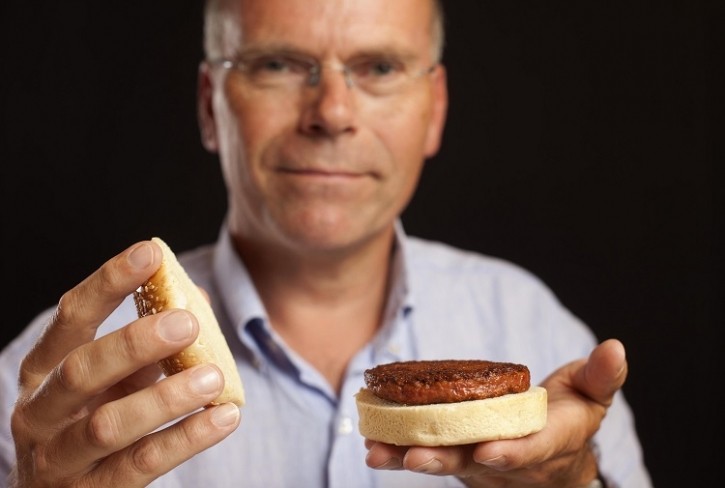Pre-market approval for novel cultivated meat merchandise and processes is slowly gaining traction around the globe. However within the European Union, the place cultivated meat was first invented, the regulatory greenlight has but to be flicked.
If Austrian, French and Italian delegations have their manner, that is how issues will keep with no thorough influence evaluation on cultivated meat.
At this week’s Agriculture and Fisheries Council (AgriFish) Committee Dialogue, some Member State representatives argued that ‘lab-grown synthetic cell-based meals’ poses a risk to conventional farming and meals manufacturing. Others don’t agree.
The cultivated meat debate fires up
Mobile agriculture, an umbrella time period encompassing the manufacturing of animal-sourced meals from cell tradition, is a comparatively younger invention. Cultivated meat, for instance, was first developed in burger kind in 2013 by Dutch researcher Mark Submit.
What’s cultivated meat?
Cultivated meat, in any other case often known as lab-grown or cultured meat, is produced by cultivating animal cells immediately. The manufacturing course of includes buying and banking stem cells from animals, and rising these cells in bioreactors with cell tradition medium. As soon as skeletal muscle, fats, and connective tissues are grown, these cells are harvested, ready, and packaged into remaining merchandise.
For the very best a part of the last decade, cultivated meat was constrained to R&D labs, till the novel meals obtained its first regulatory approval in Singapore in late 2020. Simply over three years later, and regulatory approvals are regularly spreading to different geographies (cultivated rooster has been accredited within the US, and simply this month, beef in Israel).
In Europe, dossiers have been obtained by the Swiss Federal Meals Security and Veterinary Workplace (FSVO) and the UK’s Meals Security Authority (FSA), however no software for cultivated meat has been obtained by the European Meals Security Authority (EFSA) so far, FoodNavigator understands.
Certainly, even European cultivated meat firms are in search of regulatory approval elsewhere. French domesticate rooster firm Very important Meat just lately submitted its file to Singapore’s meals company.

The talk for and in opposition to cultivated meat has been constructing within the EU, with some Member States taking issues into their very own arms. Late final 12 months, Italy handed a invoice prohibiting the manufacturing and advertising and marketing of cultivated meat inside its borders. France is now contemplating related restrictions.
Different Member States, such because the Netherlands, Spain and Germany, have already made substantial funding into cultivated meat.
On Tuesday on the AgriFish Committee Dialogue in Brussels, Austrian, French and Italian delegations ramped up the controversy, with ideas that cultivated meals ‘raises many questions’ that want answering previous to taking market authorisation choices.
Cultivated meat: a ‘risk’ to conventional meals manufacturing
In a word to the European Council, delegations from these three Member States, with assist by the Czech, Cypriot, Greek, Hungarian, Luxembourg, Maltese, Polish, Romanian, Slovak and Spanish delegations, recommended that cultivated meat is at odds with the Widespread Agricultural Coverage.
The word was tabled by Austria’s agriculture minister, however the place just isn’t a mirrored image of the Austrian Authorities’s stance.
European farmers contribute to some 1.3% of European GDP, however their efforts to meals security and safety are ‘far more elevated’, famous the delegations. Cultivated meat ‘represents a risk’ to main farm-based approaches and ‘real’ meals manufacturing strategies which can be ‘on the coronary heart’ of the European farming mannequin.
As such, and earlier than EFSA approves any cultivated meat novel meals submissions, the delegations need questions answered. Such queries relate to the ethics, economics, sustainability, social society, public well being, transparency of cultivated meat. And importantly, asks whether or not the present novel meals regulation offers a ‘appropriate and complete’ body to evaluate the potential dangers related to these merchandise, whereas ‘totally’ bearing in mind the ‘precautionary precept’.
In so doing, the delegations hope to make sure a clear, science-based and complete method to assessing the event of cultivated meat manufacturing, which in its view ‘doesn’t represent a sustainable different to main farm-based manufacturing’.
Austrian, Italian and French delegations wish to know:
- Can cell-based meat manufacturing be thought of as a extra animal pleasant different to animal husbandry, if it does contain the killing of animals?
- How are we to ensure the viability of livestock farming and of rural areas?
- How will we be sure that inequalities don’t improve as regards the affordability of real meat-based merchandise between shoppers?
- How are we to ensure the protection of the stem cell know-how to keep away from well being dangers for shoppers?
- How are we to ensure that buyers are totally conscious of the manufacturing strategies, together with if the product originates from a 3rd nation?
Pushback in opposition to delegations: ‘Regulating cultivated meat as a pharmaceutical product is nonsensical’
The delegations’ word and dialogue has obtained sturdy pushback from cultivated meat stakeholders, describing the arguments as ‘misinformed’ and ‘disappointing’.
In response to Mobile Agriculture Europe, a coalition of meals firms making cultivated meat, poultry, seafood and elements, mobile agriculture just isn’t a risk to European farmers, quite it may possibly complement present protein manufacturing and create new income alternatives for farmers to boost the crops wanted in cell tradition medium.
“The FAO predicts meat consumption will improve by ~50% by 2050 and present manufacturing strategies can’t meet that demand inside planetary boundaries,” famous Robert E, Jones, president of Mobile Agriculture Europe.
Supporting farmers and supporting mobile agriculture is ‘not a binary alternative’, he pressured: “we will each assist and shield European farmers and construct a world class innovation ecosystem that creates new jobs and helps feed a rising planet with out destroying it.”
Jones can also be happy that EFSA’s novel meals regulatory course of is as much as scratch and doesn’t want revaluation. “Corporations eager to deliver cultivated meat or seafood to market will bear a multi-year rigorous security assessment by EFSA after which every Member State may have a vote on the Fee’s draft authorisation textual content,” Jones defined.

This level, once more, is at odds with that of the delegations, who recommend that pre-clinical and medical research be used as security standards for an opinion for EFSA, as is offered for brand new pharmaceutical merchandise.
Regulating cultivated meat as a pharmaceutical product is ‘nonsensical’, in accordance with different protein advocate the Good Meals Institute (GFI).
“Cultivated meat is a meals that can be made in meals manufacturing amenities, so it’s important that it’s regulated as meals – with the identical world-leading security and hygiene requirements that apply to all the things else we eat in Europe.
“The EU regulatory regime for pharmaceutical merchandise is ill-placed to measure meals security, and its utilisation might weaken the power of regulators to offer applicable danger evaluation of cultivated meat.”
Some Member States ‘very optimistic’ about cultivated meat: ‘Let’s not solely see the threats’
Not all Member States agree with the Italian, French, and Austrian delegations’ viewpoint.
Germany has funding in different protein manufacturing, with a majority of funding being put in direction of cultivated, fermented and plant-based proteins; Spain has additionally invested considerably in its cultured meat sector, and final 12 months the Netherlands turned the primary Member State to approve pre-market tastings of cultivated meat.
Final 12 months, the Netherlands turned the primary nation within the EU to approve pre-approval tastings of cultivated meat. And at the moment (25 January), Dutch cultivated pork firm Meatable is saying it has submitted its file to carry the primary legally sanctioned cultivated meat tasting on dwelling soil.
The subsequent step is for the Mobile Agriculture Netherlands Basis (CANS) Knowledgeable Committee to analyze Meatable’s submission paperwork and supply suggestions. The committee can then approve for tastes to happen or request extra info.
“We will’t wait to ask folks to attempt our scrumptious pork sausages and expertise for themselves that it doesn’t simply look and style like meat it’s meat,” mentioned Meatable co-founder and CEO Krijn de Nood.
On the Council debate this week, the Netherlands’ consultant mentioned they perceive the issues relating to public well being and the way forward for livestock farmers, but in addition has world meals safety front-of-mind.
“Due to this fact, we consider that you will need to assist improvements that create manufacturing strategies for animal proteins complementary to, and never as an alternative to, standard sustainable manufacturing.”
Acknowledging that extra analysis is required into meals security and decrease power use, the consultant mentioned that the Netherlands is investing on this analysis. “I’d plea to [also looking] on the alternatives of this growth and never solely see the threats.”
The Danish consultant mentioned Denmark stays ‘very optimistic’ in direction of the event of progressive biotechnological options that might result in new sustainable proteins. And equally to the Netherlands, believes the ‘upside’ must also be thought of.
“We have already got EU regulation on novel meals in place. This units a transparent authorized framework that’s solidly based mostly on science. Denmark sees no purpose for hindering the event and advertising and marketing of cell-based merchandise, so long as such merchandise are secure and fulfil the authorized necessities and so long as they’re labelled in a manner that isn’t deceptive to shoppers.
“If these necessities are met, it have to be then as much as shoppers in the event that they wish to purchase these merchandise.”

